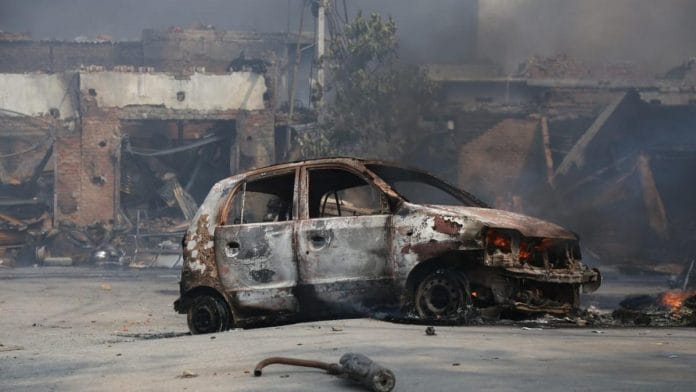New Delhi: The Delhi High Court Monday turned down Zee News’ request to file an affidavit in a sealed envelope on how one of its journalists had procured an alleged disclosure statement of a February riots accused, after the police denied having shared the same.
The channel claimed privilege over the source who had provided it with a copy of the alleged confessional statement of Asif Iqbal Tanha, a student of Jamia Millia Islamia, who has been arrested in connection with the Delhi riots.
The bench was hearing Tanha’s petition seeking a direction to take down sensitive information connected to the investigations, that was allegedly leaked by the police to the news channel.
A bench led by Justice Vibhu Bakhru rejected Zee News’ request even though the channel’s lawyer Vijay Aggarwal said it was crucial that the affidavit was filed in a sealed envelope to maintain freedom of the press.
In the hearing last week, the Delhi Police told the court that none of its personnel had shared investigation details with the channel. The Delhi Police also said that it had instituted a vigilance inquiry to ascertain who leaked the document.
Justice Bakhru later directed Zee News to submit its affidavit (not in a sealed cover) before 23 October, the next date of hearing, while remarking that news reports cannot be based on documents that are not in public domain.
Also read: Delhi Assembly panel has no right to issue summons to Facebook, its V-P on riots, Centre to SC
‘News report has not been contradicted’
In its report, Zee News had shown how Tanha allegedly “confessed” to holding a chakka jam in Delhi, purportedly on co-accused and former JNU student Umar Khalid’s instructions, during US President Donald Trump’s visit in February. The report also claimed that Tanha has admitted to having instigated people.
Aggarwal cited the Press Council Act, 1978 to argue that the law was legislated for the purposes of “preserving the freedom of press” and “maintaining and improving the standards of newspapers and news agencies”. The law, he said, stipulates that journalists cannot be compelled to disclose the source of any news or information received or reported.
Arguments were also made on the Law Commission’s 93rd report that had recommended insertion of a relevant provision in the Indian Evidence Act, 1872 that will bar courts from asking journalists to reveal his or her source of information. However, that recommendation has not yet been implemented, he informed the bench.
Aggarwal further emphasised that the news report has not been contradicted, either by the police or Tanha. Also, the reporter has requested that he should not be pressed to disclose his source of information in view of the fact that “the truthfulness of the statement given to the police is not in dispute” by Tanha.
Considering there is a void in the law on the right or privilege of journalists, Aggarwal said, the court must bridge this gap and strike a balance between the constitutional rights of the petitioner and the journalist.
The bench, however, seemed disinclined towards the suggestion made by Aggarwal and asked him to seek instructions from Zee News as to how it can issue a corrigendum, in case it is concluded that the report affected Tanha’s right to a fair trial.
Also read: 4 retired judges & 2 ex-civil servants set to ‘independently probe’ Delhi riots






